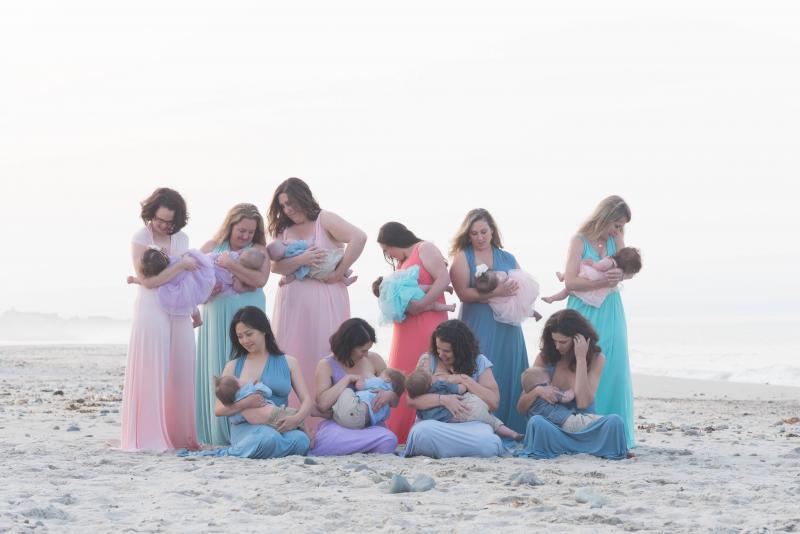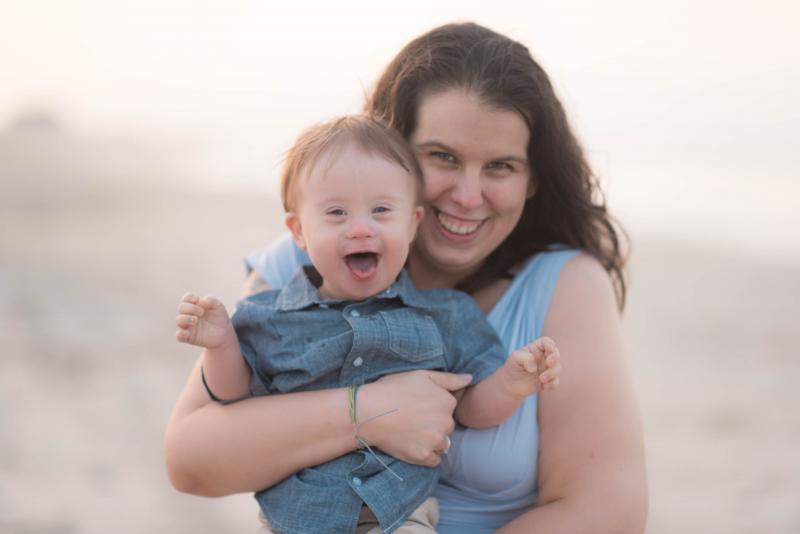Breastfeeding photo 'shattering barrier' for children with Down syndrome

A Wareham woman joined a recent breastfeeding photo shoot with her son, Oliver, that went viral and has been seen by people around the world.
Tammy Marot of East Wareham took part in a breastfeeding photo shoot through the organization Julia’s Way, a non-profit founded a few months ago for parents of children with Down syndrome. Ella Cullen, the executive director of Julia’s Way, wanted a photograph of moms of children with Down syndrome to encourage other parents and “reimagine life with Down syndrome.”
The shoot featured ten moms breastfeeding their babies on a beach in Marshfield. It has over 15,000 likes on social media and shares from Love What Matters and PopSugar Moms, who have almost 10 million fans combined. Thousands of breastfeeding and Down syndrome organizations have shared the photo around the world.
“This is shattering another barrier that’s been put in front of children with Down syndrome,” Marot said.
Since breastfeeding can be difficult for babies with Down syndrome, some women are told not to bother trying to breastfeed their baby. A survey conducted by Julia’s Way found that around 30 percent of women were told by a doctor that their baby could not breastfeed.
Cullen said breastfeeding her daughter, Julia, was difficult at first because of Julia’s low muscle tone and sleepiness, but she persisted though her doctor told her it might not be possible.
“I wanted to celebrate being able to breastfeed because it was difficult,” Cullen said. She said the project’s focus is encouraging and supporting moms who want to breastfeed, not shaming others who have not made that choice.
For Marot, breastfeeding her son Oliver, now 1 year old, was an easy process. Marot said she felt “very fortunate” that she didn’t experience problems, although Oliver had to nurse more frequently than her two older children had and he gained weight more slowly.
“It’s important to let parents know both sides,” Marot said. “It’s not only possible to nurse through adversity, but it is possible that you won’t have any adversity, or very little.”
Marot said she is “appalled” that some doctors discourage breastfeeding because it has so many health benefits.
“These children, more than anyone else, they really need the breast milk,” Marot said.
Cullen’s next project is to release videos with information on breastfeeding babies with Down syndrome, using women who have been through it to share their stories. The first video will be on the Julia’s Way website next week in time for World Breastfeeding Week, which begins August 1.
Cullen is also working on a book on this topic, which she plans to make available this spring.
For more information or to share a story on breastfeeding a child with Down syndrome, which could be used in the book, visit www.juliasway.org.

















